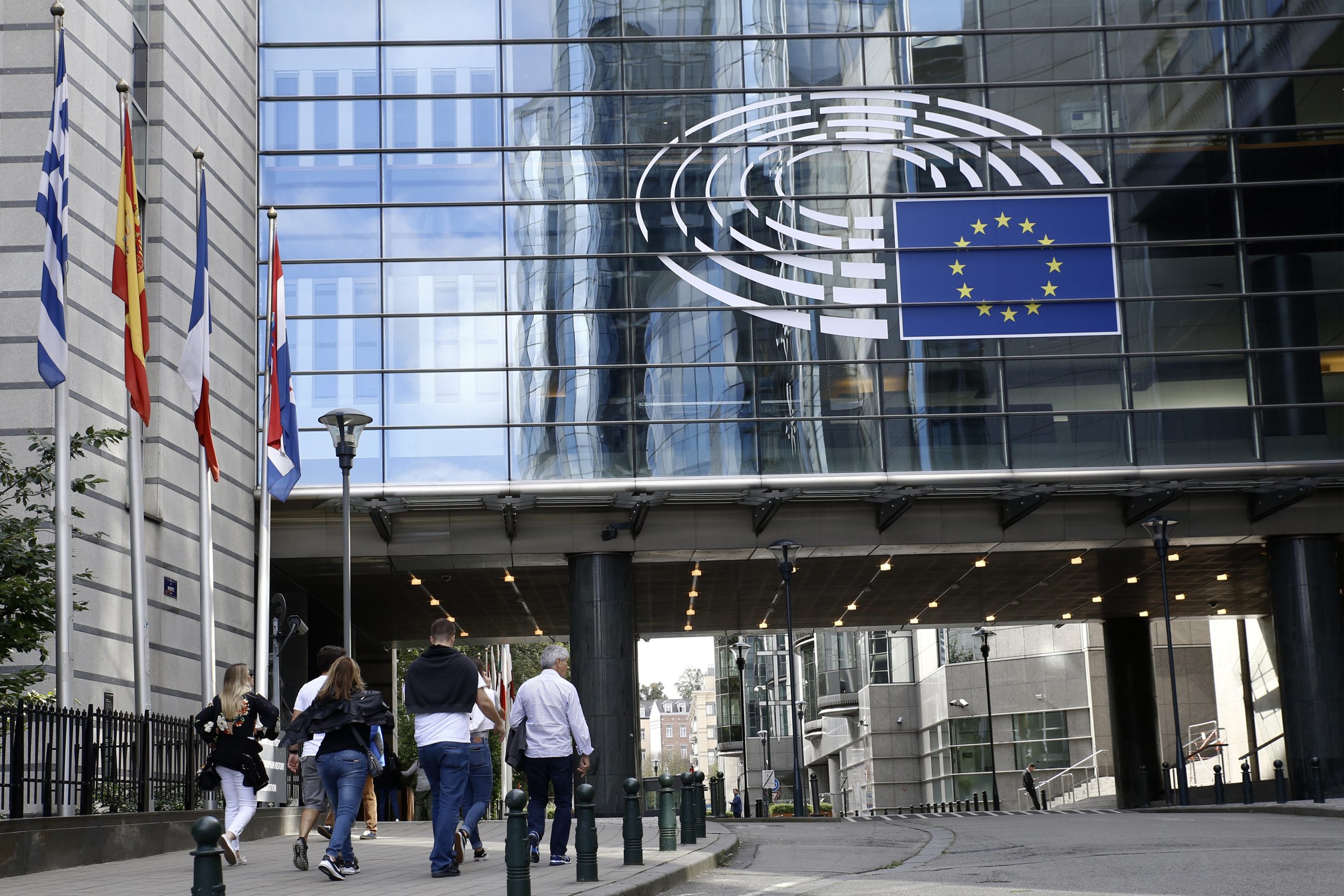
Article 48 TEU and the Question of the Possibility of the Council to Decide Not to Forward a Proposal for the Amendment of the Treaties
The European Parliament has initiated the ordinary revision procedure, in accordance with Article 48 TEU. The (2) paragraph of Article 48 TEU states the following:
“The Government of any Member State, the European Parliament or the Commission may submit to the Council proposals for the amendment of the Treaties. These proposals may, inter alia, serve either to increase or to reduce the competences conferred on the Union in the Treaties. These proposals shall be submitted to the European Council by the Council and the national Parliaments shall be notified.”
If the European Council decides so by a simple majority, the European Council will convene a Convention to examine the proposals composed of Heads of State of Government of the Member States, of the European Parliament, and of the Commission. The Convention makes the decision to adopt proposals for amendments of the Treaties by consensus and sends the recommendation to the conference of representatives of the governments of the Member States. The conference determines by a “common accord” the amendments made to the Treaties, which have to be ratified by all member states as well.
The European Parliament had voted on a resolution to initiate the ordinary legislative procedure and thus amendments to the Treaties in June 2022 as well. This, however, was not submitted by the Council of the European Union (Council) to the European Council. The problem was either that there was no political will in the Council to forward the initiative, or the fact that the European Parliament had only adopted a hastily drafted plenary resolution and not an INL report (a type of report that contains a legislative or another type of initiative in its annex), or both. Not initiating the proposal in an INI report could be seen as a procedural error leading to the invalidity of the proposal itself.
The European Parliament thus initiated the proposal a second time, and this time, in the form of an INL report. The proposal was hastily adopted as the end of the legislative term was looming over the MEPs, the Constitutional Affairs committee gained access to the first draft in September and had voted on it on the 7th of November. The European Parliament plenary has adopted it on the 22nd of November by a slim majority (291 for, 274 against, 44 abstaining).
According to the press the report was submitted by the Council to the European Council on the 18th of December, 2023. This second time, the Council did not hesitate much before submitting the proposal, which supports the theory that the first time, the form of a plenary resolution was considered to be invalid by the Council. The Belgian Presidency of the EU Council will have the possibility to invite Charles Michel to put treaty revision on the agenda of a European Council meeting.
The initiation of this procedure (Article 48 TEU) happened for the first time after the adoption of the Lisbon Treaty. The procedural acts of all parties involved have an important effect on such procedures in the future. The interpretation of the Treaty provisions has an enormous effect on the European Union, its Member States, and their future.
The Council has submitted the proposal of the European Parliament to the European Council, but was this an obligation of the Council or does the Council have a discretionary right in this matter? Could the Council refuse to submit the proposal to the European Council?
“These proposals shall be submitted to the European Council by the Council”
According to Professor Giuseppe Martinico of the Sant’Anna School of Advanced Studies of Pisa, the Council does not have the power to modify the proposal of the European Parliament. Furthermore, the Council has a legal obligation to submit the proposals to the European Council. There is no limit in Article 48 TEU, but the principle of loyal cooperation requires that the Council submits the proposal to the European Council without delay. Professor Martinico also states that the Council “should at least take a motivated decision about not to proceed”.
If we consider the theories regarding legal reasoning and interpretation, the position of Professor Martinico seems to be the (simple) grammatical interpretation of Article 48 TEU. There are, however, other possible avenues of interpretation as well.
If this interpretation is correct, why did the Member States incorporate the Council submitting the proposals in Article 48 TEU in the first place? The Council and the European Council share the same secretariat. Their members are representatives of the Member States on different levels. The proposal of the European Parliament would have been forwarded without any question or delay to the European Council if the Treaties would simply state that the proposal shall be submitted to the European Council, the proposal shall be put on the agenda of the European Council, or the proposal shall be considered by the European Council. The role of the Council in this procedure is unclear and cannot be solved simply by applying grammatical interpretation.
Applying another type of interpretation, logical interpretation and the so-called “argumentum a contrario”, an argument for the contrary principle, would, in this case, lead to a different conclusion. The Council is named in the referenced part of Article 48 TEU because it plays a more important role than just being a mere postman forwarding the message of the European Parliament to the European Council. There is a specific reason why the Member States chose this formulation, the draft of the Lisbon Treaty was thoroughly debated before its adoption and was dissected sentence by sentence, word by word. Every word plays an important role in a legal text. Contextual grammatical interpretation would also lead to the same conclusion, meaning the grammatical meaning of the text needs to be assessed in light of the text as a whole and not as a separate part of the sentence.
Therefore, if the text says the Council shall submit the proposal it means that the Council has a discretionary right to vote on the question of submitting the proposal of the amendment of the Treaties, including the right to refuse submitting it. Why would the Council be named in the Treaties if it would not have a role in the procedure?
There are other instances where the Treaties use the words “shall” and “submit” in one sentence, regarding the right and obligation of one of the EU institutions in a certain procedure. The word “submit” is written 66 times in the TFEU alone. An example is Article 218 (3) TFEU, regarding agreements between the EU and third countries or international organizations, and specifically, their negotiation and conclusion. In Article 218 (3) TFEU the text says the following:
“The Commission, or the High Representative of the Union for Foreign Affairs and Security Policy where the agreement envisaged relates exclusively or principally to the common foreign and security policy, shall submit recommendations to the Council, which shall adopt a decision authorising the opening of negotiations and, depending on the subject of the agreement envisaged, nominating the Union negotiator or the head of the Union’s negotiating team” [bolded by Á.L.].
In this case, it is clear that the High Representative of the Union for Foreign Affairs and Security Policy has a specific role in the procedure and the possibility to draft the recommendation according to his or her own position. Therefore, if the Council is named in an article, the Council does play a more significant role than a simple automaton. The goal of the Member States (applying another type of interpretation) was, presumably, to build in enough procedural steps, and enough time to contemplate the necessity of Treaty modification. It is important to consider. The Treaties lay down the foundation of the EU and regulate all aspects of it. The EU can only take action in fields where it has the necessary competence to do so, which is expressed in the Treaties as the principle of conferral. The significance of a Treaty amendment requires a deep reflection from all parties regarding all aspects of the modification.
Can one instance establish a rule?
The Council did not forward the 9 June 2022 initiative of the European Parliament to the European Council, but it did forward the one adopted on 22 November 2023. It is possible that either the political position of the Member States in the Council has changed, or the Council did not want to risk a legal battle in front of the European Court Justice regarding the interpretation of Article 48 TEU, as the outcome would have been uncertain. It will be up to the heads of states and heads of governments to decide on the timeliness of the proposal of the European Parliament.
One interpretation of Article 48 TEU has thus prevailed. Will this interpretation be followed, if there will be another Article 48 TEU procedure initiated in the (distant) future? Did this set an example, establish a norm from which it is not possible to deviate? Did this change the meaning of the words “shall” and “submit” in EU law generally? In the case of the lead candidate process, one instance (Jean-Claude Juncker) did not establish a norm as President Ursula von der Leyen was not a lead candidate. Only time will tell if the grammatical or other interpretations of Article 48 (3) TEU will be followed in the future.
Árpád Lapu is a policy adviser on constitutional issues at the European Parliament since 2019 and a PhD student of the Károli Gáspár University of the Reformed Church in Hungary. Between 2017-2019, he worked as an adviser at the Cabinet of the Minister of Justice of Hungary, conducting comparative constitutional analyses. He has earned his JD at the Pázmány Péter Catholic University in Hungary, has a BA in international relations from the University of Szeged, and an MA in European and international administration from Andrássy Gyula German Speaking University in Budapest. He has completed an Edx MicroMaster in cooperation with the Catholic University of Louvain (UCLouvain) in international law. His field of research is non-participation in armed conflicts in international law and constitutional norms regarding non-participation in armed conflicts. He has written publications regarding the future of the EU ETS system of the European Union, institutional reform proposals of the Union, and research in the field of social sciences.








